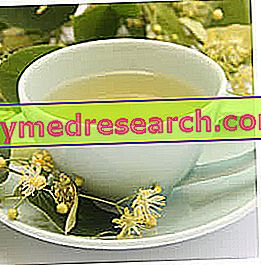The laxative herbal tea that we propose in this article contains frangula bark, a natural remedy widely used in the fight against constipation.

Now let's see the ingredients of this laxative herbal tea:
| Frangula bark | 40 g |
| Flax seed intact | 40 g |
| Star anise and licorice for infusion | 10 g |
Prepare for infusion: pour 200 ml of boiling water on a soup spoon of preparation. Bring to cooling and filter. Take a cup of laxative herbal tea in the evening.
In addition to the bark frangula, another very important ingredient of the herbal tea is the intact flax seed, known for its richness in mucilage. These are heterogeneous polysaccharides which dilate in contact with water, forming colloidal, viscous but non-adhesive solutions (a characteristic that distinguishes them from gums); the result is an increase in the fecal mass (softer stools), whose pressure against the intestinal walls represents a powerful stimulus to peristalsis (progression of the intestinal contents).
Star anise and licorice are added to the preparation not so much for their laxative properties, but for the ability to improve the organoleptic characteristics. Anise, in addition to modifying the taste of the laxative herbal tea, has carminative (facilitates the elimination of intestinal gas) and antispasmodic (attenuates abdominal cramps) properties. The same actions are ascribed to licorice, which therefore - like anise - helps to mitigate the side effects of anthraquinone drugs, preventing excessively energetic colic contractions.
The laxative action of the herbal tea manifests itself, indicatively, after 12-36 hours from the assumption. It is not recommended for prolonged use; this laxative herbal tea is contraindicated in pregnancy and lactation; avoid the prescription in children.
It should be remembered that the prolonged use of anthraquinone laxatives can induce electrolyte leakage, dependence phenomena with the need to increase the dose, atonic colon with perturbed functionality, colonic melanosis and severe constipation in case of abandonment of therapy. It is therefore advisable not to take the laxative herbal tea for more than a week.



